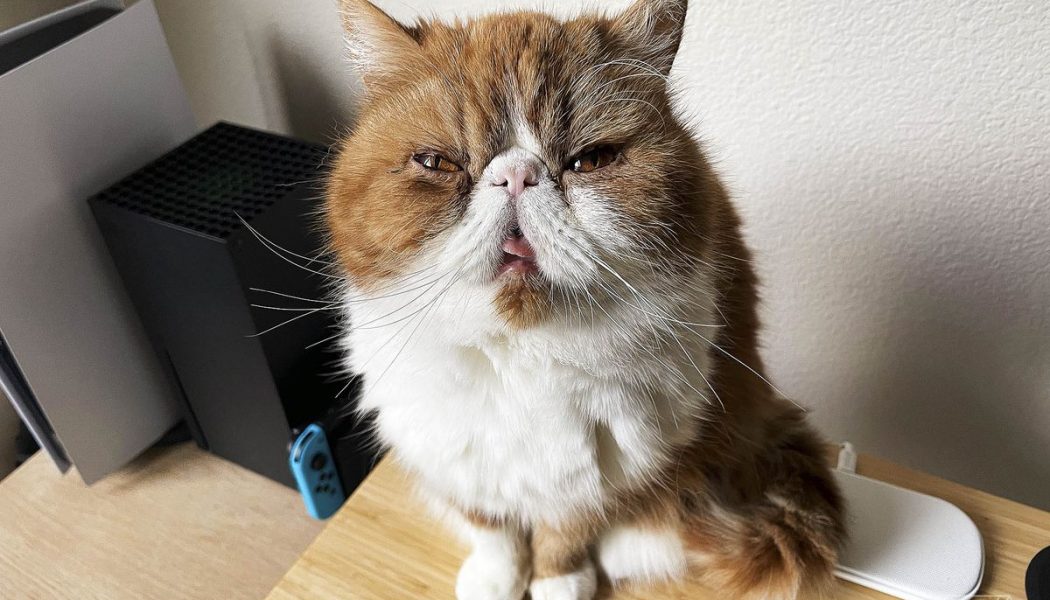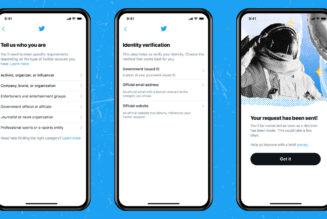Many people adopted a pet during the COVID-19 pandemic. My wife and I just lost one.
Gouda, our eight-and-a-half-year-old exotic shorthair cat, died on April 16th. We rushed him to the hospital the previous morning after he spent another night vomiting. The doctors weren’t sure what was wrong, but, over the course of 24 hours, signs pointed to fatal kidney disease. We made the difficult choice to euthanize him.
The events would have been horrible under any circumstances. But I found that the forced isolation of the pandemic made grieving a lost family member even more challenging than I could have possibly imagined.
My wife and I spent the majority of the 24 hours inside a Zipcar parked outside the animal hospital. Due to safety regulations, we couldn’t wait in the lobby, so we — and all of the other families worried about their pets — waited alone in our cars. Despite being feet away from each other, we were all worlds apart, stranded in pods of sadness made of metal and glass. Once, we watched as a woman handed off her cat to the veterinary staff, got back in her car, and broke down sobbing.
We spent hours staring blankly at the tall hedges in front of our car. My wife’s iPhone was a lifeline and a curse. With each passing second, we desperately hoped for a call, but each time the phone finally rang, the news was worse.
As we attempted to sleep in the Zipcar overnight, the phone was perched on the dashboard. I stared at it in between fits of sleep, dreading when it would ring. We could never talk to the vets in person, meaning we couldn’t see body language, facial expressions, eye contact — nonverbal cues that would have helped us make the most difficult decision of our lives.
When we went in to see Gouda for our final goodbye, we sat in a dimly lit room on a soft couch. Our masks constantly filled up with snot. From the other side of the room, the staff told us we couldn’t be with Gouda when he died. There would be no easy way to be six feet apart.
The only time we were close to another human being is when they handed Gouda to us, wrapped in a blanket, cone around his neck, and drugged out of his mind. As soon as we were alone with him, we ripped off our masks so we could kiss him one last time.
We got the last phone call on the ride home from the hospital. Gouda had died peacefully.
Right after, my wife and I realized we didn’t want to be home, but we had nowhere else to go. We’re not vaccinated from COVID-19 yet, so we can’t see our family or friends in person to find solace. We couldn’t escape our empty studio apartment.
Out of habit, we opened the front door gingerly. Every day for more than eight and a half years, Gouda had always greeted us, sometimes throwing his whole body against the door in his excitement to see us. But he wasn’t there.
Instead, we saw his food bowl, his scratching post, his toys. Our apartment had been the one place we had felt truly safe during the pandemic, but it was now filled with reminders of our missing family member.
So we began to clean.
Usually, getting rid of things comes easily to my wife and me. We have internalized much of what Marie Kondo writes about in The Life-Changing Magic of Tidying Up. But this was different. It was harder than any cleaning we had done before because the things we got rid of were the reminders of our missing family member. We couldn’t fully move on if we kept them, but that didn’t make it easy to let them go. And because of the pandemic, we couldn’t ask others to come over and help. We had to face this part of the grief as just the two of us.
I will never know how grieving this death would have been different if we weren’t still in the pandemic. I do think it made the worst moments even worse. It trapped us in our car. It kept us from him in the hospital. It separated us from our families. It locked us in our home with the memories of our lost family member.
And yet, the pandemic forces us to face our grief head-on. My wife and I are healing, slowly. We spend the day crying and remembering. We say one nice thing about Gouda before bed. Because we are vulnerable with each other, I don’t feel like I’m bottling up any feelings, so my mind doesn’t race, and I can go to sleep.
Kondo recommends thanking objects that you remove from your house to acknowledge the role they played in your life. I did that for every one of Gouda’s things. “Thank you, scratching post,” I said. “Thank you, plastic Easter egg. Thank you, food placemat.” I even thanked his litter box.
Thanking Gouda’s things may sound trivial. But it was one of the few rituals left to me during the pandemic, when so much has been taken away, and it helped me recognize everything that Gouda gave to me. He taught me responsibility, caring for and feeding him every day. He taught me how to play, crouching just out of sight around the bed so that he could spring toward me. He taught me about love, snuggled above my head on my pillow in the middle of the night.
Thank you, Gouda.
:no_upscale()/cdn.vox-cdn.com/uploads/chorus_asset/file/22347077/jpeters_210301_4457_0023.jpg)









